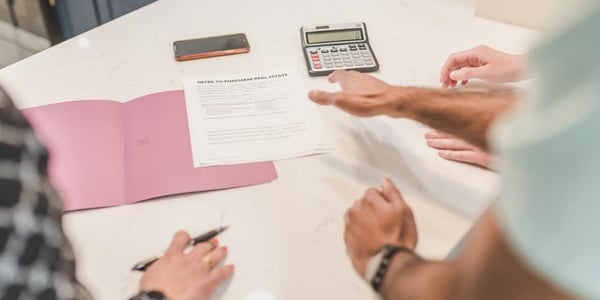
What Does a Second Home Really Cost?
Many adults, especially retirees, choose to acquire a second home. People have second homes for...


With the tragic collapse of the Champlain Towers South in Surfside, Florida, a startling fact...

A second home can encompass a variety of living arrangements. Whether you're considering a house,...

Many assume a second home means purchasing a house, condominium, or mobile/manufactured home....
Avoiding Unpleasant Surprises: Pre-Purchase Condo Inspections
Buying a condo is a significant investment, and it's crucial to ensure you're making a wise decision. One of the best ways to do this is by conducting a thorough pre-purchase inspection. This step can save you from unexpected expenses and headaches down the line. In this blog, we'll explain why a pre-purchase condo inspection is essential and what you should look for.
What Does a Home Inspection Cover?
Home inspections are a great way to spot problems before purchasing a home. Among the types of things covered are:
Home Inspections for Condos
Home inspections are well-known for single-family homes but less so for condos, possibly because this housing type is a small percentage of total homes. For example, condominium-type housing represented only about 4% of total home sales in 2019. However, among older adults, condo sales accounted for 10% of sales for buyers aged 64-72 and 12% for those 73-93.
Some condo buyers believe they don't need a home inspection because they assume the homeowner association (HOA) will handle any problems. However, the condo owner is fully responsible for issues within the unit. For example, the condo owner must deal with such things as faulty light switches or warped floors.
How is a Condo Home Inspection Different?
A condo home inspection differs from the single-family home version in some important ways.
The scope of most condo home inspections is limited to the interior only, meaning the review covers only components within the unit's walls because the inspector cannot access certain areas. For example, attics and foundations/basements are commonly examined in single-family homes. Such places are often not accessible in a condo and are therefore not included.
Another difference is that condos can have in-unit features in some cases. In others, features are shared in common. For example, a condo unit can either have its own heating and cooling machinery or use a shared system for that purpose. While in-unit equipment can be directly evaluated, examining shared system components like boilers, furnaces, or air-conditioning equipment is often impossible.
A Big Difference: Common Areas and Shared Exteriors
Condos and other multi-tenant structures also differ from single-family homes in that they typically have shared exteriors as well as areas used in common by all residents. Some condo inspections offer the option of examining these shared elements, which might provide important information to the buyer. The HOA pays for maintenance and repairs of these items from accounts funded by the residents' monthly dues. Sometimes, larger projects cannot be covered by existing funds. In these cases, the HOA board of directors pays for these projects by imposing mandatory special assessments on all residents. So, knowing ahead of time about potential HOA-funded repairs may influence a buyer's purchase decision.
A further advantage of examining common areas is the possible recognition of structural problems. After the recent collapse of the Champlain Towers South in Surfside, Florida, it was reported that residents complained about issues like hairline concrete cracks and water in the garage for years before the disaster. These observations were enough to convince the HOA in 2018 to hire an engineering consultant whose detailed analysis revealed significant deficiencies. Had these problems been dealt with sooner, the catastrophe could have been averted.
Even though a home inspector is not a structural engineer, some problems could be brought to light from trained observation. In these cases, other qualified professionals could be retained to perform more specialized inspections. At the very least, a prospective buyer can ask if the HOA is aware of potential structural problems and what they plan to do about them.
Finding a Home Inspector
Home inspection services are easily found on the internet. However, asking trusted friends and family members about any good experiences with home inspectors is also wise. Buyers can also ask their real estate agent for a recommendation, but this could be risky. The agent is financially incentivized to close the sale, so they could be less likely to endorse an inspector who works hard to find all the problems.
After establishing a sort list of inspectors, here are some questions to ask:
Get an example of what the inspection report will cover. This report should document any defects and include explanatory photographs so the buyer can clearly understand any potential problems with the property.
As for cost, this is usually paid for by the buyer. Home inspections can cost anywhere from $200 to over $1,000, depending on location, size, and property type. As a result, condos could tend toward the lower side of the range.
It's Simply a Good Idea
Because it's not required for a mortgage, some buyers waive the condo home inspection requirement to gain a competitive advantage in a hot real estate market. However, this is a bad idea because it is essential to uncover hidden problems that could result in substantial future costs. A condo home inspection should be treated as a necessary cost in the quest for a new home.
Living50+